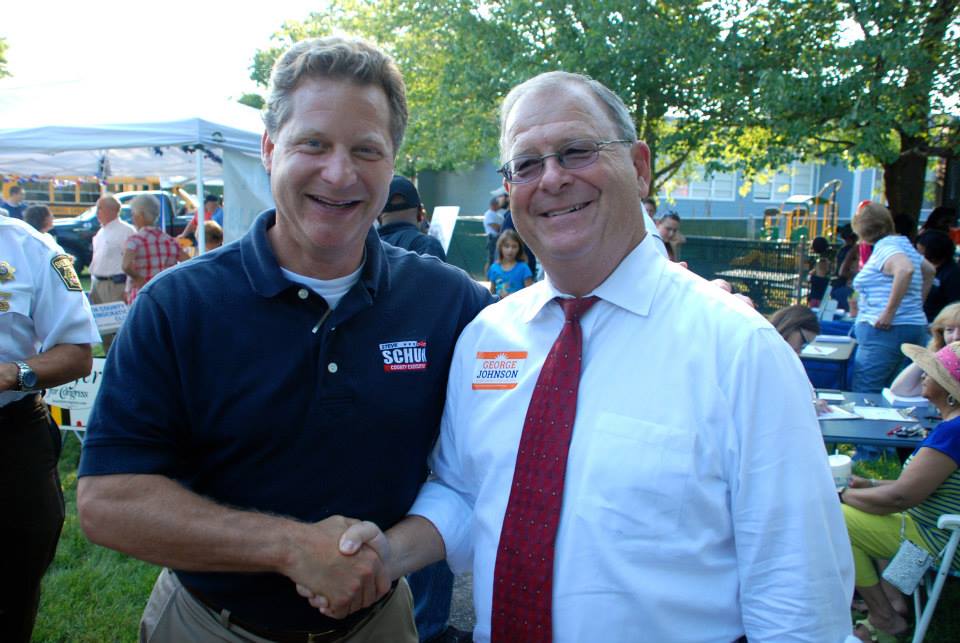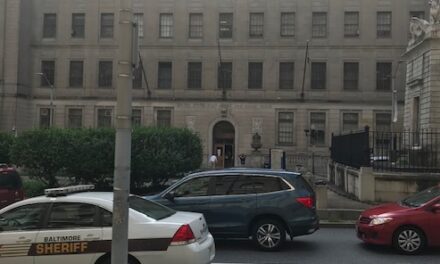By Megan Poinski
Megan@MarylandReporter.com
Cameras that take pictures of motorists running red lights and speeding – currently located in 41 communities statewide – can be bad deals for the cities that install them, according to a report from PIRG.
The report goes through many of the issues that states and communities have had with the traffic cameras issuing citations – and costing both motorists and communities dearly.
“It looked at whether or not communities that put up cameras have the public’s interests at heart, or whether they are looking for revenues first and are signing contracts forfeiting decisions about public safety to companies,” said Jenny Levin, a state advocate for PIRG.
In 2009, the General Assembly passed a law that allows counties and municipalities statewide to install the cameras to catch speeders in school zones and construction areas. A petition effort to bring the bill to referendum was unsuccessful.
Problems with cameras
The cameras, which have cropped up across the state, have been controversial. Grassroots groups, including Stop Big Brother Maryland and Maryland for Responsible Enforcement exist to point out the issues that arise due to use of the cameras. Each jurisdiction that decides to use the cameras is able to decide many of the details, like where the cameras will be placed, how citations will be issued, and which company will provide them.
Speed and red light cameras, PIRG’s study states, are often used as ways for areas to get more revenues in bad economic times. They essentially shift enforcement from police officers to automated devices, and are seen by opponents as contracting out traffic cop work to private companies.
According to the report, the cameras don’t always increase safety on dangerous roadways. Ronald Ely, who is the editor and founder of StopBigBrotherMd.org, has been following the issue of traffic cameras since they started being used in Montgomery County three years ago. He said that several counties and municipalities in Maryland have contracts with traffic camera companies that make money based on how many citations are issued. (Ely said that a creative legal interpretation allows this kind of contract, which is technically outlawed in the state.)
“The sole objective of the corporation is to make more money, and that’s purely based on the number of tickets issued,” Ely said. “So it gives them an incentive to encourage the municipality to put the cameras where they would get more tickets, like in a transition zone where the speed limit changes, or create a new school zone and put them there.”
Ely said that several counties and municipalities put up the cameras soon after they were first allowed statewide. Camera installation slowed down around the 2010 elections, but it has started to continue. Recently, Howard and Baltimore counties have added more cameras to their roadways.
When a jurisdiction decides to start using cameras, the law requires that they can only give out warnings for the first 30 days. In many places in Maryland, Ely said that one camera is usually put up in a low-traffic area for the “warning period.” After 30 days, cameras are put everywhere. When New Carrollton began its camera program, 150 warnings were sent out in the first 30 days. The next month, 13,000 drivers received citations, Ely said.
Accuracy questioned
Also, he said, there are constantly questions on how accurate the cameras are. Ely said that camera-issued speeding tickets have been challenged in court because the photos that came with them showed that the ticketed vehicle could not have been traveling as fast as claimed by the ticket.
Ely questioned how effective cameras are in reducing motorists’ speed.
“Those ‘Your Speed is’ signs that you see near construction are very effective in slowing down peoples’ speed,” he said. “But they are not making any money.”
Maryland PIRG’s Levin said that the study shows that people, not profits, should be the top consideration in speed and red light enforcement.
“In difficult budget times, when jurisdictions are giving out private contracts for safety enforcement, they need to be vigilant and make sure that the public safety is coming first,” she said.







You have to exceed the speed limit by 12mph to earn a ticket. Stop whining. Stop speeding.
Of course it is a money grab. Why else would you have a work area speed camera when there is no work being performed. I understand that in one case there was no work going on for weeks, and the camera was racking up tickets and revenues at an 10’s of thousands of dollars for the sole purpose of lining the coffers. One could be convinced that the camera’s are for safety if there is a workmans safety issue. Without one, the evidence is in. It is a tax for going the normal speed limit since the work area speed limit is not needed. GRRRRR. Shame.
Has the idea that people should drive the speed limit occurred to anyone? These cameras don’t do anything that can’t be done by a cop with a radar gun, but they allow the police to use those officers elsewhere rather than tracking down people who seem to think the speed limit is a speed suggestion. I’ve gotten 3 tickets from these machines – and acknowledge that I was speeding and these tickets were deserved.
Stop whining and slow down.
Have you ever stopped to consider the process behind the designation of speed limits? Of the 3 tickets that you received were you traveling to fast for the road conditions? Please exand your awareness as you travel, there are limit discrepancies in opposing lanes throughout the area. Accepting what you are told to accept as truth or law is an acknowledgement of subconscious committal of rights. Examine your awareness of the facts and then come to your own conclusion. Laws are not created for the common good, they are created to benefit the ego of man.
BIG BROTHER IN BALTIMORE the time between the yellow and red light is just seconds , not the national norm so sometimes you dont know what to do to be safe………..going too slow is also not safe. Its all about money, YET WE DONT HAVE ENOUGH MONEY TO KEEP OUR CHILDREN SAFE IN BOYS AND GIRLS CLUBS.. BUT WE CONTINUE TO WASTE CITY TIME AND MONEY ON INNER HARBOR CAR RACE
BALTIMORE THE CITY THAT GETS YOU BACK……NOT THE CITY THAT PUTS CHILDREN FIRST. BUT I STILL LOVE BASLTIMORE IT IS A PERFECT CITY AND MD IS A PERFECT STATE.
One trick in Baltimore is to install a speed camera at an intersection that has a red light camera. That way, if the person speeds up to get through the intersection and avoid a red light ticket, you can catch them with the speed camera. This has happened to several people I know at a particular intersection near my home.
NO KIDDING. REMEBER BALTIMORE IS THE CITY THAT GETS YOU BACK
Safety is all important to all of us, but in most cases it is just money grabbing, clearly evidenced by the mean spirited location of the devices or the ridiculously reduced low speed limit. Then the private companies can harass the motorists forever and report them to the credit bureaus, even if appeals are pending. They do not care, just want to collect. This is a terribly callous attitude of “elected” government officials.
Same with parking tickets. Many people go to lunch or dinner and it takes them one hour plus some time to walk to and from the car. This is the window of opportunity for the enforcers. Believe me, these enforcers are there every day and know the timing of the meters and the most likely chance to CATCH the expiration time. It leaves a very bad taste with the client and I think that most parking spaces should be extended to one hour and one half or two hours to allow for the patrons to visit their shops are establishments, in particular after 6 PM. Very few people leave their car without doing anything, just to fill the “two hours”. Again people would rather pay a little more for more time than they actually need, which would create more regular revenues any way.